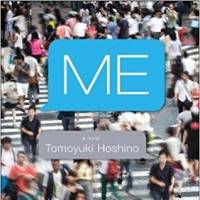Charles De Wolf's new understated-but-excellent translation of 2010's "Ore Ore" is sure to bring novelist Tomoyuki Hoshino to a wider audience. "Me" is a bizarre, compelling — and at times confusing — novel, which Nobel laureate Kenzaburo Oe praised for its "literary thought." Oe awarded the novel the Kenzaburo Oe Prize for 2011, which was influential in getting it translated.
Me, by Tomoyuki Hoshino, Translated by Charles De Wolf.
226 pages
AKASHIC BOOKS, Fiction.
Hoshino's hook is the well-known "Ore, Ore" ("It's me!") telephone scam in which elderly people are swindled by fraudsters pretending to be relatives. In this case the fraudster is Hitoshi Nagano, a sales rep who picks up a nearby stranger's phone and peruses the messages.
Nagano then decides to call the owner's mother. He dupes her into thinking he's her son and this escalates to Nagano swindling the mother out of ¥1 million. What follows is, I suppose, what led Oe to single out Hoshino for his literary thought: Instead of taking on the themes of fraud and corruption, the novel takes a radical and surreal departure that hinges on doppelgangers, identity and, essentially, human nature.
Having assumed the character of his victim, Daiki Hiyama, Nagano ends up being mistaken for him. Even the woman whom he swindled believes that Nagano is her son. Meanwhile, Nagano's parents have adopted a Nagano doppelganger, who has assumed his role.
"Me" is a compelling read, despite what might feel to some readers like a rushed ending.


















With your current subscription plan you can comment on stories. However, before writing your first comment, please create a display name in the Profile section of your subscriber account page.